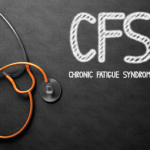New research has examined the autonomic parameters of patients with chronic fatigue syndrome (CFS) using the DePaul Symptom Questionnaire to place patients on a disease spectrum. Researchers found different groups of CFS patients had different levels of autonomic dysfunction and cognitive impairment, suggesting that different CFS criteria may diagnose a spectrum of disease severities and different CFS phenotypes…










